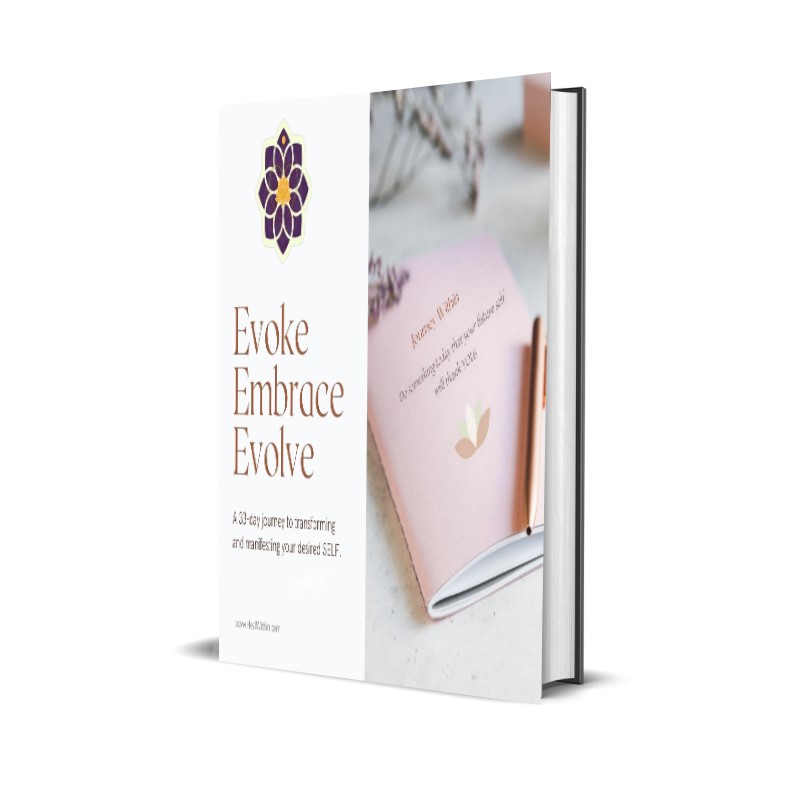Hypnotherapy and Talk Therapy – Differences
Hypnotherapy vs talk therapy – they both have their places in mental health treatment. Hypnotherapy is excellent for focused, rapid intervention, while talk therapy provides a more extensive framework for long-term mental health improvement. Combining these therapies with mindfulness can offer a holistic mental and emotional well-being approach.
In the realm of mental health and personal development, choosing the right therapeutic approach can be crucial. Hypnotherapy and talk therapy are prominent methods with unique benefits and applications.
Hypnotherapy
Hypnotherapy involves using hypnosis to achieve a state of focused attention and deep relaxation, bypassing the critical, analytical part of the mind to access the subconscious. This approach is highly effective for addressing specific issues such as pain management, anxiety, fears, and even habits like smoking. For instance, I have successfully used self-hypnosis to undergo dental procedures without anesthesia by focusing attention on managing pain.
Talk therapy
Talk therapy, particularly Cognitive Behavioral Therapy (CBT), involves structured conversations between a therapist and a client. This method can address a broad range of issues, often requiring longer to work through complex, lifelong challenges. CBT helps clients understand and change their thought patterns, which can influence behaviors and emotions over time.
Your Choice
While hypnotherapy offers a more condensed and intense therapeutic process, often providing quicker results by targeting specific issues directly, talk therapy provides a broader and more gradual approach to mental health. The choice between these therapies depends on individual needs and the nature of the issues being addressed.
Additionally, practices like mindfulness and meditation complement both therapies. Mindfulness involves being present and aware of the moment, often using breathwork and relaxation techniques to reduce stress and enhance well-being.
For more insights, visit my blog at lizaboubari.com, where I delve deeper into these therapies and their benefits.
Additional Tools
HealWithin also offers audio recordings for sleep, stress reduction, and self-esteem.

Can I Hypnotize Myself?
Yes, it’s called self-hypnosis. Hypnotherapy empowers you by providing tools to manage stress in your daily life. You can learn self-hypnosis techniques, enabling you to enter a state of relaxation whenever needed. These techniques can be practiced at home, allowing you to take control of their stress levels independently. My audio recordings can help guide you.
Self-hypnosis is so powerful that I have undergone several dental surgeries without anesthesia or painkillers. You can see me on YouTube having dental surgery with only self-hypnosis.
More Information
My Recommended Audio Recording
I have made audio recordings for self-hypnosis specifically to address certain issues. I recommend the Build Confidence and Stress No More recordings. Download the recording and save it to your device for listening. Find a quiet and comfortable place as you allow hypnosis to happen.
Related Posts and Videos
Please book an Appointment with Me
Schedule a Complimentary Consultation: Text I MATTER to +1 818 221 2797 or visit HealWithin.
Daily Gratitude Group:
https://www.facebook.com/groups/2179264339028870
Get the Compose, Clear, Create 33-Day Calendar – a journey to manifest your desires and create at the HealWithin Shop:
https://healwithin.com/shop/compose-clear-create-33-day-calendar
Sign up for HealWithin Membership and get Daily Affirmations. HealWithin membership also gets you exclusive invitations to special HealWithin events, including seminars, Group Experiences, and essential webinars.
Join today!
https://healwithin.com/healwithin-membership
Until next week, God bless you, and may the universal light surround you.
Hypnotherapy vs Talk Therapy Video
Transcript of Hypnotherapy vs Talk Therapy
Transcript
Welcome to Heal Talk Tuesdays with Liza, where
transformation begins as we evoke, embrace, and evolve.
Greetings greetings greetings and welcome to Heal Talk Tuesdays.
This is Liza. It’s so good to be here with you, isn’t it?
Well, I hope you are having an amazing day. Today we’re going to be
talking about something that I’ve had people ask me over and over.
And it is, what is the difference between talk therapy, hypnosis, and meditation?
So, it’s going to be an interesting talk, and I just wanted
to share some tips of what is meditation or mindfulness.
Why would you do that? Versus talk therapy or versus hypnosis.
By trade, I am a clinical hypnotherapist, stress management
consultant, and I’ve been doing this for the last 24 years.
And through all this time, I have done my own meditations. I’ve done mindfulness.
I have experienced the talk therapy I have gone to a therapist
many years ago, like way before I was doing the work that I do.
And now, not only I practice hypnosis and do
that on myself, like hypnotizing myself and
especially my gums in order for me to go and have
root canal, which I’ve had eight root canals,
with absolutely no anesthesia, no topical. I do all my dental
work with absolutely no topical or any needle going into my body.
And not because I have a fear of dentistry because let me say this.
After my high school, actually my last year in
high school, I went for my ROP classes and learned
how to be a dental assistant. So, I’ve worked
in a dental environment and know the procedures.
So, what I do, I use hypnosis, which is a very focused attention in
order for me to bypass pain around my gums and not have any anesthesia.
And it can be used not only for pain management,
it’s hypnosis is very focused attention therapy.
Now, let me give you just a small synopsis of each one and then we compare them.
Okay, so one of the things, it’s even in my blog in
lizaboubari.com. You can go there, check my blog. I have many blogs.
And one of the blogs that I just put recently is what is the difference
between talk therapy and hypnotherapy? They’re pulled therapy.
And choosing the right therapy is always the best thing for you.
Now, hypnotherapy is utilizing hypnosis while we’re doing therapy.
And hypnosis, as you know, it’s a focused attention, taking you into a state of
relaxation and bypassing, analyzing, judging, reasoning, and analyzing, judging.
And criticizing factor of yours, which is the critical
factor between our conscious mind and our subconscious mind.
So, when we bypass that part, we go from the conscious
thinking part straight into the subconscious, which
is the emotional part, which is what I call the
blueprint of every action, reaction, emotion, healing,
behavior, and habits that is stored in there, everything, right?
So, for that, I want you to realize that hypnotherapy utilizes
visualization techniques and mental imagery for you to bypass the
critical factor, going to the subconscious, and with a focused attention.
Let’s say my client comes in for fear. We focus on the
fear. I have a client that just came in a week ago because
somehow, out of nowhere in the last six, seven months
ago, she developed fear of doors, opening doors, okay?
Not because she had OCD. It became like an obsessive disorder,
but only in the seven months. So, creating this fear factor,
understanding where this fear came from, where is the cause, and how
we can bypass the critical factor to go to the subconscious, right?
Which is evoking what was, understanding that, modifying
it, editing the information, once we understand where
and why the fear of opening doors comes, and then helping
her to embrace that moment to evolve to the next level.
That’s the techniques that I use. But everything is to
bypass the critical factor to get into the subconscious.
Now, what is talk therapy? And hypnosis and hypnotherapy that I do is very, the
time is very much condensed versus traditional
talk therapy, what we call behavioral
talk therapy, which is another version, another word for that. It’s like a.k.a.
CBT. CBT is cognitive behavioral therapy and encompasses range of techniques.
That psychologists use, MFTs use, and that’s licensed marriage and family
therapist. Then I take my hat off to them as well. They use that part.
And it’s a conversation between the therapist and
the client or their patient, minor clients, and their
patient. And it takes a long time. It can take months
or perhaps some of my clients who come to me years.
For several issues, maybe lifelong issues. And
that’s why it takes so long. Perhaps their sessions
are one hour. My are between 75 minutes to 90
minutes and we zone in. We do 10 minutes of talk.
And then we go straight into the aspect of hypnosis or
doing the hypnotherapy part. Okay. Now, when we compare
those two, both of them, or even mindfulness, which I’m
going to get to right now, is the approaches are different.
And yet they’re both to improve the mental and
hypnotherapy is also mental and emotional part of the client.
As I said, hypnosis and hypnotherapy, duration is much shorter and focusing
on specific issues, whereas CBT is longer, perhaps lifelong issues.
Now, when we come to hypnosis and
mindfulness, I say when we do mindfulness and
meditation, it is to sit in a quiet place and
be mindful of how you feel on that moment.
It’s a practice of daily practice for a duration of the time, perhaps a lot
of people they do gratefulness, journaling, and then they do meditation,
allowing to sit quietly and allow information or just nothingness to
download for them to have a sense of relaxation from the top of the head.
All the way down to their feet.
And they do this for about 10 to 30 minutes,
mindfulness, meditation, which a lot
of people call loving kindness, meditation, or trends, send dental, which is TM.
And we do this practice for 10 minutes, 15 minutes, 30 minutes, and some,
they do it for an hour in the morning to set themselves for the day,
because when you quiet your mind and you allow all kinds of nothingness,
you open yourself to the universe, you open yourself to messages from above,
and you also quiet your mind so that you become one with your body.
Again, this is absolutely wonderful because it is a focused attention, controlling your
breathwork, and there is breathwork for
counts, there is breathwork for eight counts.
And what are those breath counts? You do four counts in.
You hold for four counts, and you exhale in four counts.
Realizing I did all this while I was still holding my breath.
So again, four counts in, four counts hold, four counts exhale.
See, I also do a lot of meditation work, even with my
sessions and I teach my clients, so let’s do this together.
Four counts in, four counts pause, four counts exhale.
Exhale.
Now, there is also another one which is called four
counts in, four counts pause, eight counts exhale.
So, you can also do eight counts in, four counts pause, eight counts exhale.
So, let’s do eight counts together, right?
Okay, so beginners start with four counts
pause for four counts exhale for four counts.
And when you get to a level that you can hold your breath and do…
And hold for three, two, one exhale.
Eight counts out.
Now, realize when you begin, always remember that any
kind of a breath work, it’s not this shallow work.
It’s always through the stomach, it’s
abdominal, so you exhale by inhale and exhale
by pushing your abdominal muscles out that all the breath comes into your stomach,
and not the chest, and when you exhale, you
empty the stomach and exhale out, releasing it.
Or, the easiest one is one count in, hold for counts, one exhale.
One, two, three, four, four.
Okay, which in meditation, this practice that we do
is maintaining a level of awareness and breath work.
And commonly used for releasing stress and becoming more
aware of where you are and just focusing on your breath,
instead of focusing on issues, problems, anything that
you are afraid or anxious about at that very moment.
Which in practice, what we call is a transference,
transferring your attention from what is to yourself.
Yes, becoming more aware of yourself, your breath,
your body, and becoming one with the moment.
Now, again, hypnosis uses all breath work.
I use mindfulness, I use breath work, I use all the techniques to
help and guide you into a state of deep relaxation for a purpose.
It’s the purpose, it’s the purpose that you come in for.
Either opening doors, you’re having issues with that, you no longer want to do that,
because you’re afraid to open doors, again, it’s fear.
When you feel overwhelmed and are in having anxiety, having obsessive
negative thoughts, you feel overwhelmed and you are anxious all the time.
You are smoking, you want to become a non-smoker and/or you are overweight
and it’s the emotional weight, the things that has been eating at you.
It’s not so much the food factor, you can go to
a nutritionist and you can go on a certain diet.
There’s all kinds of abs, nutritionists, exercise people.
And yeah, when you do all the yoyo and everything and
nothing still works, there is an underlying pain factor.
Trauma or a secret, something that it’s been eating at you without
you realizing it, that the subconscious mind has the answers.
It’s when you come to a hypnotherapist, when you come to me, we delve into that.
Okay?
So there is no good reason for you to have fears.
There is no good reason for you to be anxious all the time.
One client came in and his anxiety was in the last three and a half years and why?
We develop this and I want you to know that fear factor is internal.
Anxiety is internal.
It’s not because of the outside forces or what happened.
Those are triggers.
And often for years later, you can probably have this and talk therapy is wonderful.
CBT is great for your life.
But at that very moment when you are feeling anxious, when
you’re in panic, when you’re in fear, that is what hypnotherapy.
We delve in, we go straight from your conscious mind, straight to the
subconscious, the subconscious, and opening the doors of the subconscious
to bypass the critical analyzing factor in
order for you to acknowledge what’s happening.
Once you acknowledge, is up to you to keep it because
you need it, or to say thank you, I no longer want this.
Yes.
Some people do keep, do hold on to it. And why?
Because for whatever reason, which we call a
secondary benefit, it is giving them the benefit.
And that wants to client understand that, even that is knowingly keeping it.
So now you understand.
There is talk therapy, there is meditation, and there
is hypnotherapy, or you’re utilizing the powers of hypnosis, which is internal.
I teach all my clients self-hypnosis.
I give you your audio recording for you to have it and do self-hypnosis at home.
So you listen to that, and you do this entire work on your own.
So you don’t need to have, you don’t need to bring me to your home all the time.
My voice comes with you.
I give the ways to journal.
I provide daily affirmations.
I give all the tools and techniques to my
clients so that in a way, they don’t have to be
not only in the mercy, but to have that as an anchor, as being enabled.
They able themselves, and they can do this.
You can do this at all times in the privacy of your home and anywhere.
So the only thing I tell all my clients, make sure
you’re not using hypnosis while operating machinery or
driving, because when you’re in that state, you are not quite aware of everything else,
although you are awake and you can hear everything.
So it’s the best high.
It’s a natural high that you can have.
That’s it.
I hope this was beneficial to you, and you can have the differences in
knowing that those seeking rapid, focused intervention for specific issues.
You can benefit from hypnotherapy and by all means.
I do offer a complimentary consultation for 15 minutes.
You can book me at ihealwithin.com.
Just go to the calendar, book yourself.
If you’d like this session, if you enjoyed this, I’m doing
this mini talks more than instead of half an hour or longer.
By all means like, share, and thank you to all of you who are referring
clients and are the biggest testimonial for everything that I do.
And until next week, I bid you goodbye.
Have an amazing day.
God bless you and made a universal light.
Surround you, always.
[BLANK_AUDIO]
[BLANK_AUDIO]
[BLANK_AUDIO].
HealWithin Kids – helping motherless children
Heal Talk with Liza TV – if you would like to be a guest or sponsor the show, please visit https://liza.tv.
Missed some episodes? They are on my YouTube channel.
Do you know of someone who’s ready to change a habit or needs to heal within? contact me at: info@healwithin.com
I’m here for you.

